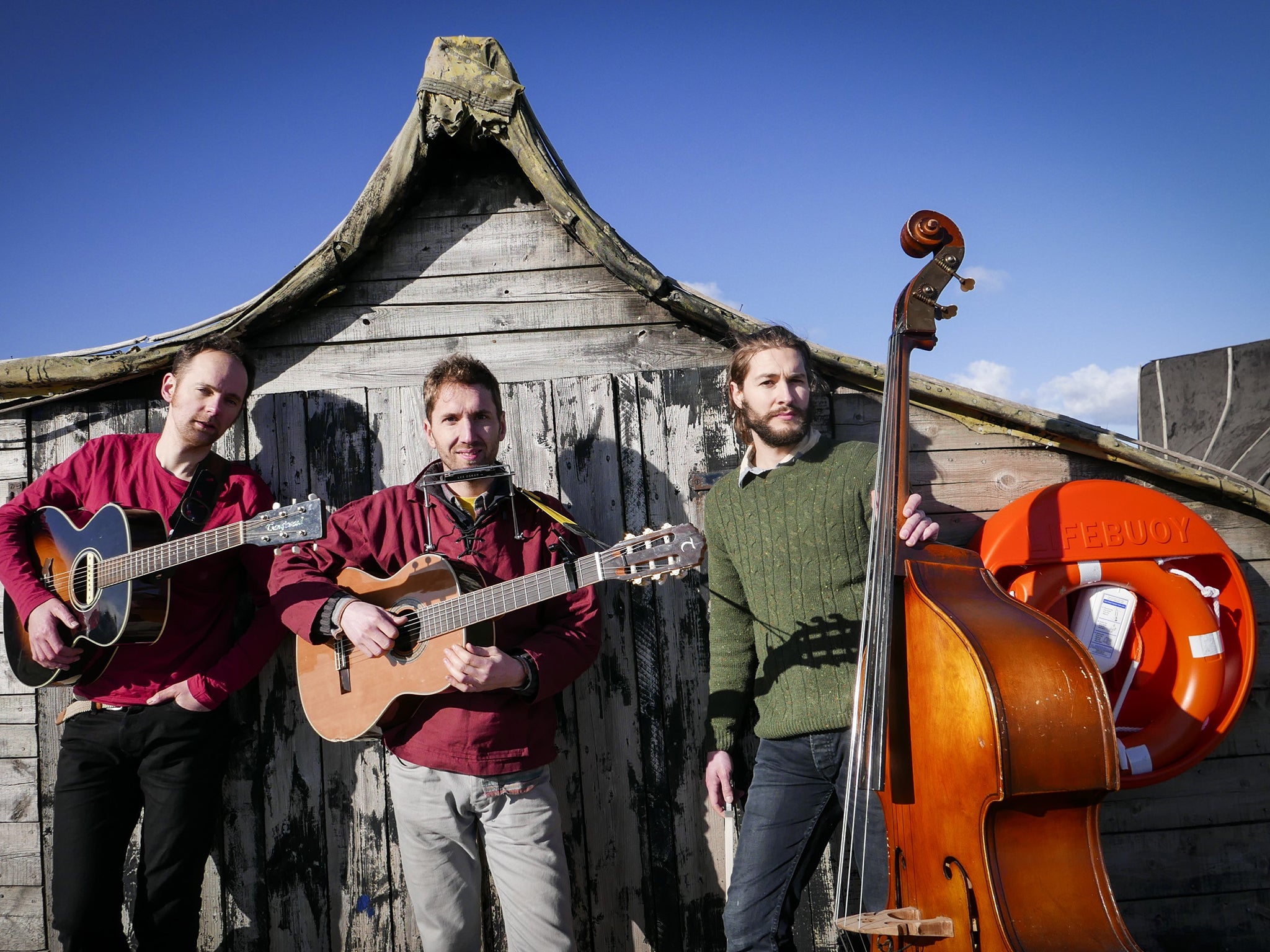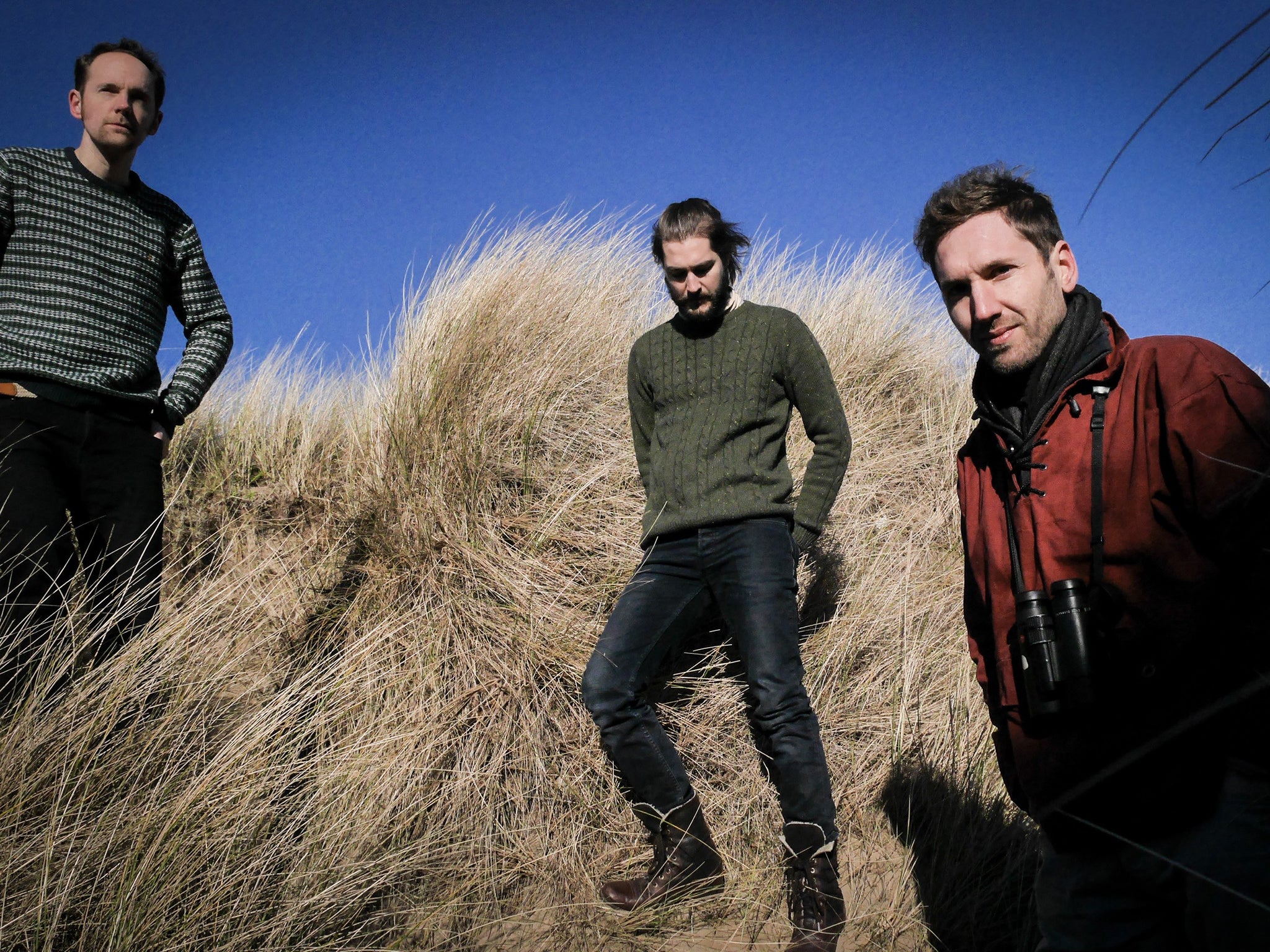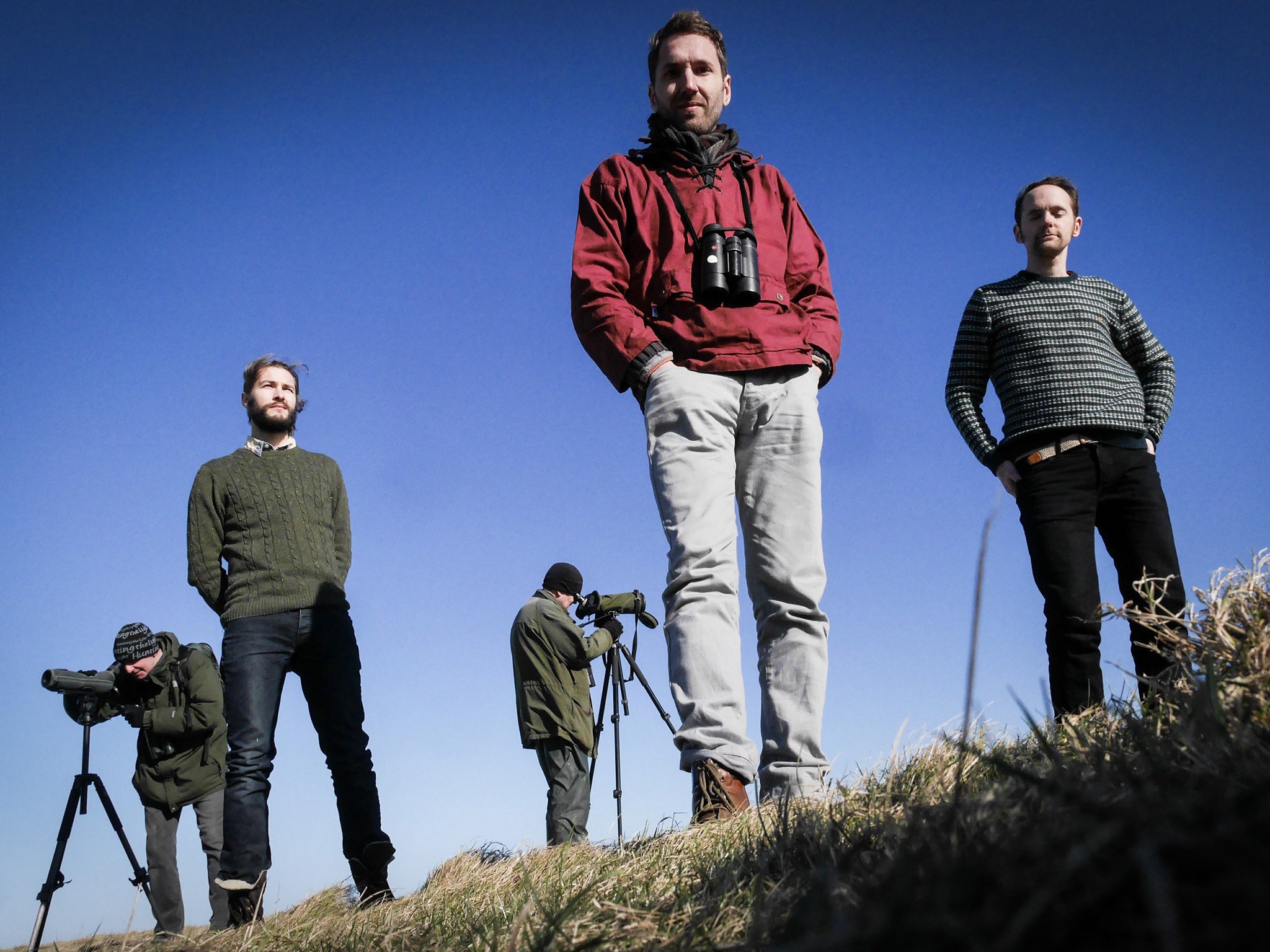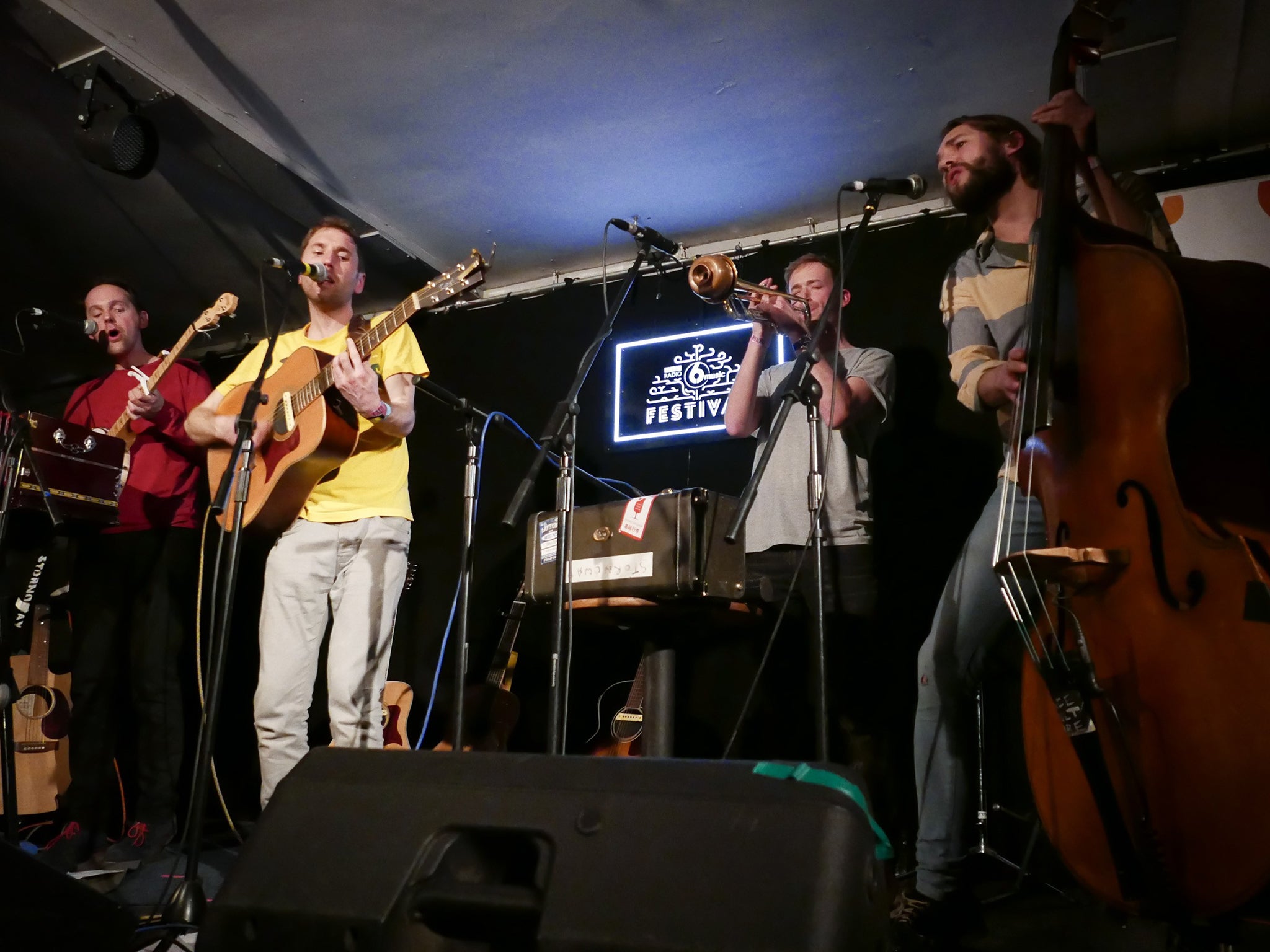Stornoway's frontman Brian Briggs on the band's new album Bonxie... and birds
The album subtly incorporates the calls of 20 different bird species

Your support helps us to tell the story
From reproductive rights to climate change to Big Tech, The Independent is on the ground when the story is developing. Whether it's investigating the financials of Elon Musk's pro-Trump PAC or producing our latest documentary, 'The A Word', which shines a light on the American women fighting for reproductive rights, we know how important it is to parse out the facts from the messaging.
At such a critical moment in US history, we need reporters on the ground. Your donation allows us to keep sending journalists to speak to both sides of the story.
The Independent is trusted by Americans across the entire political spectrum. And unlike many other quality news outlets, we choose not to lock Americans out of our reporting and analysis with paywalls. We believe quality journalism should be available to everyone, paid for by those who can afford it.
Your support makes all the difference."Do you get any peregrines?" asks Brian Briggs, frontman of Stornoway and doctor of ornithology, as we climb into a Land Rover.
"We tend not to see them," replies Andrew Craggs, our guide and senior manager of the National Nature Reserve on Lindisfarne. "But we know they're here because we find redshanks' legs lying around."
Satisfied with this, Briggs nods and fiddles with his Leica binoculars but for me, things have yet to come into focus. "The legs are all the peregrines leave behind," explains Craggs, turning to me and smiling.
Matters ornithological – and indeed ecological – are particularly pertinent to Stornoway's third album, Bonxie. Named after the sobriquet of bellicose seabird the great skua, the record's wonderment at the forces of nature is also a conservationist's heartsong: Briggs and Co gently advocating a greater respect for the natural environment and all it contains.

The album subtly incorporates the calls of 20 different bird species, and opening song "Between the Saltmarsh and the Sea" features that of the brent goose. Given that Lindisfarne is one of the few UK locales where the pale-bellied sub-species of brent goose goes for the winter, we've made a low-tide crossing to the island this bright, but bitingly cold, morning in the hope of seeing some.
What transpires is quite literally a wild goose chase, albeit a highly enjoyable one. Craggs is an amiable host, the setting is breathtakingly beautiful, and when Briggs and his bandmates give an unplugged performance of Bonxie's first single "Get Low" in front of an upturned boat that has been transformed into a beach hut, the small, appreciative audience includes some curious Japanese tourists and a curlew.
"'Get Low' was partly inspired by our drummer Rob [Steadman] moving to New York for a while with our blessing," Briggs tells me later, prior to Stornoway's BBC 6 Music Festival gig in Newcastle. "He's a bit younger than the rest of us and he never got the chance to go to university before the band took off. So when the lyric goes 'You look across the water/like a bird in a cage', there's that sense of longing, of migration.
"It's a weird composite, that song," adds the singer. "The melodies in the bridge come from a sketch that Jon [Ouin; Stornoway's multi-instrumentalist] wrote about stollen cake, and there are references to people that I met on Chesil Beach one winter when we were trying to feed up guillemots caught in an oil spill. The birds didn't have much hope, sadly, so it wasn't the best use of resources. I enjoyed living in a hotel in Portland and cooking meals on a George Foreman grill, though."
Briggs and Ouin formed the band that would become Stornoway in 2006, during their fresher's week at Oxford University. In 2009 they became the first unsigned band to appear on Later... With Jools Holland. Promotional duties for their folky, wide-eyed, flora and fauna-obsessed 2010 debut, Beachcomber's Windowsill, took in an unplugged performance in the dinosaur hall of the Yale Peabody Museum of Natural History in Connecticut. Briggs's father Derek, formerly the museum's director, and a respected professor of palaeontology specialising in the unlikeliest of fossil specimens – spiders and bird feathers – gave the band's introduction.
Enjoy unlimited access to 100 million ad-free songs and podcasts with Amazon Music
Sign up now for a 4 month free trial (3 months for non-Prime members)
Enjoy unlimited access to 100 million ad-free songs and podcasts with Amazon Music
Sign up now for a 4 month free trial (3 months for non-Prime members)
While Stornoway's first two albums were largely informed by life in and around Oxford, Bonxie was mostly written on the Gower Peninsula in south Wales, Briggs having moved there recently with his wife and young family.

"It was an attempt to shake up my song-writing," he says. "You can tell from the band name and everything about us that there's a draw to the outdoors. I wanted to feel small and I knew that I would enjoy being somewhere wilder than Oxfordshire, which is very manicured by comparison. Now I have this daily connection with the sea, watching the tides coming in and out."
Briggs's ailing Renault Trafic camper van, which he calls "Bertie", served him well as a writing den. The Atlantic storms took their toll on Bertie, however, turning him green and orange with algae and rust. "He's taken on a really distinctive smell", concedes Briggs. "But it's somewhere I can lose myself and not be disturbed."
Bonxie also saw Stornoway employ an outside producer for the first time, namely Gil Norton, who, being best known for producing more high-octane acts such as Foo Fighters and The Pixies, was not an obvious fit. Briggs says Norton was "incredibly obsessed" with the rhythm section end of things, "and didn't necessarily want much" on strings, vocal harmonies and other finessing. Lord knows what Norton thought of Stornoway's use of a "drumming snipe" on the song "Lost Youth". (I had pictured a tiny-winged tub-thumper; alas the term refers to the sound the snipe's tail feathers make during its dive-bombing display flight).
At one point, I confess to Briggs that I was a little surprised to read that while he was at university, he listened to lots of reggae while well over the herbaceous border. I'd second-guessed him and the image didn't fit with that of your stereotypical nerdy birdwatcher. Still, as someone who on "Love Song Of The Beta Male" sings, "Don't ask me to sweep you up and carry you across the threshold/because you know I'd only hurt myself if I were to try", Briggs is of course aware of the non-alpha twitcher's predicament. Consequently, he prefaces our discussion of his PhD study of gadwall and shoveler ducks at reservoirs in the Staines/Heathrow area with a wry smile and the disclaimer: "This is not especially interesting".

In truth, though, Briggs is interesting and he isn't at all nerdy, just a little shy. "I don't like showing off, which is perhaps not ideal if you're the frontman of a band," he says. "I like to think there's a humility to what we do. Our first gigs, I was nervous for about a week but it feels a lot more natural now."
And what of the time he and his fellow Oxford graduate bandmates actually played on the island of Stornoway? "The locals were polite but there was definitely a sense of curious suspicion. We had a trick up or sleeve, though, which was to pour them all a shot of whisky.
The running joke was about The Wicker Man," Briggs says. "We'd brought the DVD with us and we actually got stranded there because of the weather, but thankfully no wicker men were constructed in our presence. I remember that when we finally crossed The Minch back to the mainland, the sea was glassy flat and the scenery was mind-blowing. This pod of a hundred-or-so common dolphins swam up to the ferry and started playing on the bow wave. It was such a magical meeting of worlds."
I put it to Briggs that although most of us have had similarly magical encounters, a lot of the time we take the presence of other species for granted. Does he have any thoughts on how to change that? "Birds," he says simply. "They're most people's first point of contact. When I learnt to recognise the songs of a few species as a kid, everything changed. Suddenly there was a language going on that I could tune into."
'Bonxie' is out now on Cooking Vinyl
Join our commenting forum
Join thought-provoking conversations, follow other Independent readers and see their replies
Comments